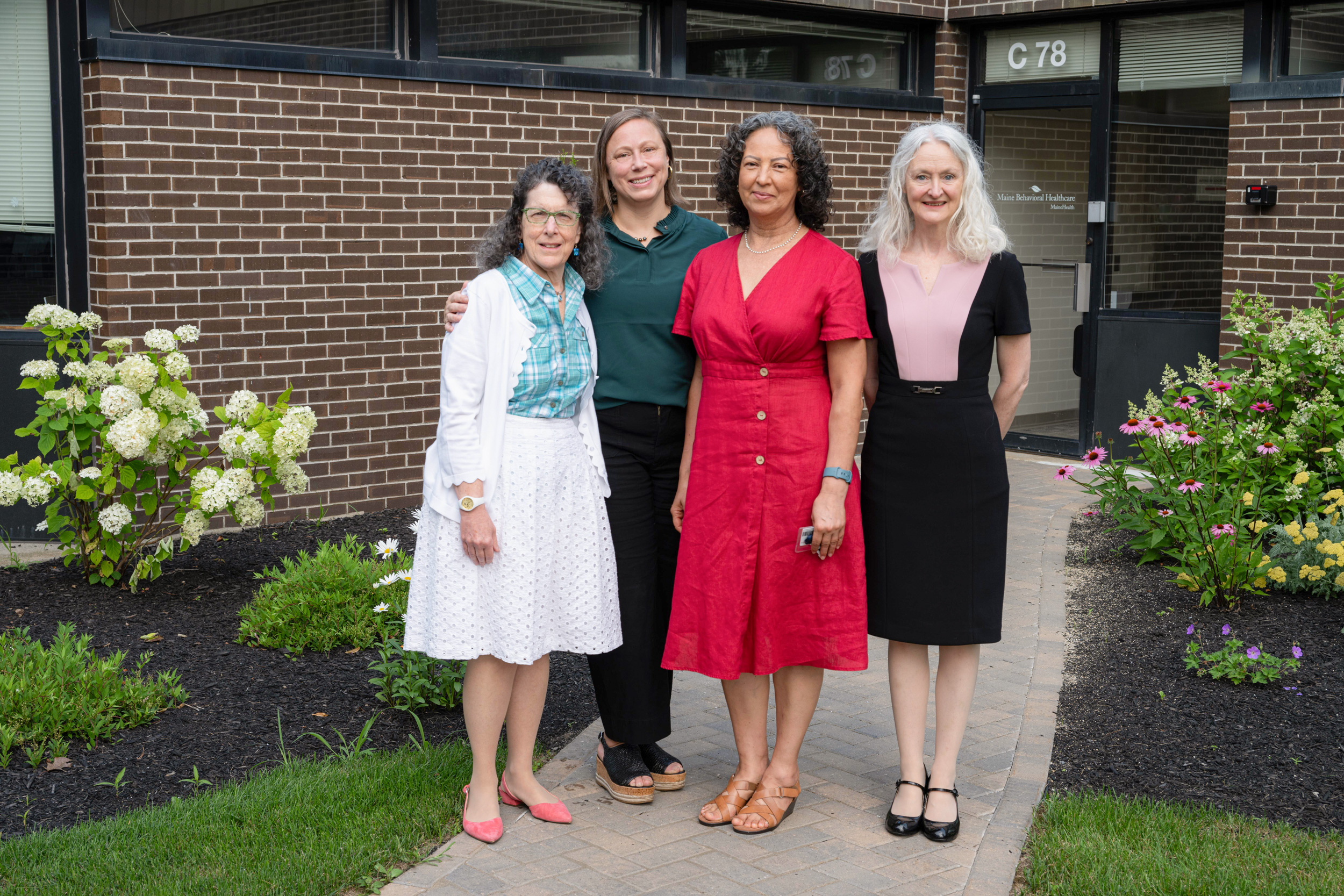
A Passion to Stop at Zero
Talking about suicide brings tears to the eyes of Dr. Linda Durst. She has been touched both personally and professionally by it and is heartbroken to see suicide rates increase. This is true for all ages but particularly with teens who are still living with the sustained trauma of the COVID pandemic.
“There are few things more tragic than somebody dying by suicide,” says Dr. Durst who serves as Maine Behavioral Healthcare’s Chief Medical Officer, and Chair, Department of Psychiatry, Maine Medical Center. “I carry the memory of certain people in my heart and that motivates me to support Zero Suicide as a means to reduce suicide deaths.”
This passion makes Dr. Durst the ideal executive sponsor for Maine Behavioral Healthcare’s (MBH) adoption of the Zero Suicide framework that began three years ago (Zero Suicide: One Parent’s Story).
Making progress
Since 2020, the initiative has gained momentum by establishing leadership and champion committees with representation across MBH and more recently Maine Medical Center. Using input from a care team survey, two focus areas were identified:
1) Provide training for suicide screening to identify those who may be at risk of suicide.
2) Provide training on comprehensive suicide assessment to evaluate suicide risk, estimate the immediate danger to the patient, and determine treatment.
The best tools save lives
After many months of research, program workgroups recommended the adoption of the following best practice methods for screening and assessment of suicide:
The Columbia Suicide Severity Rating Scale (C-SSRS) was chosen as the most effective at screening the risk of suicide. C-SSRS is a short questionnaire that can be used quickly to determine risk and is recommended by the Substance Abuse and Mental Health Services Administration (SAMHSA).
The Chronological Assessment of Suicide Events (CASE) was identified as the method to provide suicide assessment. CASE is a flexible interviewing strategy for sensitively and skillfully uncovering suicidal ideation, planning, behaviors, and intent1.
Training in both tools began last year and will continue until everyone who interacts with patients has been educated on proper suicide care.

Zero Suicide Team: Linda Durst, MD, Rebecca Hoffmann, Blanca Gurrola, Adele Hays
“I’m so proud to have a team that are so invested in advancing this cause,” says Dr. Durst. “The passion, energy, and commitment of our dedicated care team members will help us become a high-reliability organization committed to the best suicide care. Implementing the Zero Suicide model will take us several years and providing these training opportunities is a critical first step in preventing somebody’s death by suicide – and that is a huge win.”
Zero Suicide Leadership Team
Linda Durst, MD (Executive Champion) MBH Chief Medical Officer & Chair, Department of Psychiatry, Maine Medical Center
Blanca Gurrola (Co-Chair) MBH Vice President, Outpatient Services
Rebecca Hoffmann (Co-Chair) MBH Sr. Director Clinical Innovation & Training
Linda Butler, MD MMC Director Psychiatry Admin, Outpatient Clinic Management
Valerie Compagna
MBH Communication & Public Affairs Manager
Lee D’Attilio
MBH Sr. Director, Intensive Services
Melissa Gattine
MBH Manager, Senior Educator
Adele Hays
MBH Senior Project Manager
Robyn Ostrander, MD
MMC Associate Medical Director Child Psychiatry
